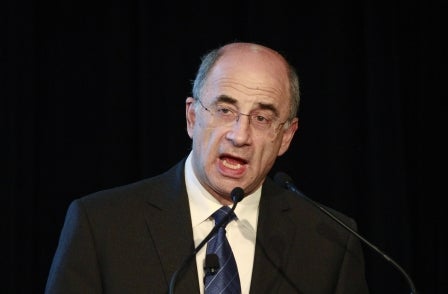
Newspaper and magazine industry trade-bodies today pressed on with the creation of a new press regulation regime regardless of the current political stand-off surrounding Royal Charters.
The Newspaper Society (regionals), the Newspaper Publishers Association (nationals), the Scottish Newspaper Society and the Professional Publishers Association (mags) today invited more than 200 publishers to sign up to a contract-backed press regulator called the Independent Press Standards Organisation.
It is based on the regulator outlined in the Royal Charter submitted by press owners’ body Pressbof to the Privy Council in May which is being considered by that body this week.
The press industry groups said today that their proposed regulator “will deliver all the key Leveson recommendations”.
But campaign group Hacked Off has already condemned it as “no more than a cynical rebranding exercise”.
Culture Secretary Maria Miller has welcomed the industry move saying: "We have been urging the newspaper industry for several months to set up a new self-regulator, and are glad that they seem to now be making progress. We all want to see the principles of the Leveson report implemented and the self-regulatory body is a key component of that.”
The industry bodies behind the new regulator have highlighted the following aspects of the proposed new regulation regime, which differ from the Press Complaints Commission status quo:
• A majority of independent members at every level, and no industry veto on appointments
• The power to impose £1m fines for serious or systemic wrongdoing
• Upfront corrections and adjudications – whether editors like it or not
• A standards and compliance arm with investigative powers to call editors to account.
• An Arbitration Service to offer a speedy and inexpensive alternative to the libel courts, subject to the successful conclusion of a pilot scheme
• A whistleblowers’ hotline.
The industry groups said today: "In his report, Leveson was very clear that it should be the job of the industry to address the failures of the past by creating a new regulator: '…by far the best solution to press standards would be a body, established and organised by the industry, which would provide genuinely independent regulation of its members….'"
The rules and regulations of the new regulator and articles of association will now be considered by 200-plus newspaper and magazine publishers “with a view to final agreement in the next few weeks”.
The contract-based regulation system binds publishers in and is intended to prevent a repeat of the situation where the Press Complaints Commission was subject to a long-standing boycott by Express Newspapers.
The Independent titles, Guardian News and Media and the FT are all understood to have been part of the discussion process which has been behind the proposals put forward today. They have so far declined to give their support to the Pressbof Royal Charter.
A Foundation Group chaired by Lord Phillips of Worth Matravers, the former President of the Supreme Court, has begun the process of selecting the first members of the Appointments Panel for the new body.
The industry bodies say they have the support of Culture Secretary Maria Miller and the Government, who they note told them in May: “I would urge you… to continue with the work to set up the independent self-regulator as quickly as possible.”
The press trade organisations also said today that their new regulator does not depend on the approval of a Royal Charter and have noted that Prime Minister David Cameron said in March: “The Royal Charter does not set up a self-regulator, that is for the press to do.”
The Pressbof Royal Charter is expected to be referred to a Privy Council sub-committee this week. Lord Prescott said today that the rival Parliament-backed press regulation Royal Charter may not be approved until January 2015, four months before the next General Election.
The industry groups said in today's statement: “It is already eight months since Leveson delivered his report and the industry does not believe the public can be expected to wait longer before a new regulator is put in place.
“The documents published today follow the criteria set out in the Royal Charter put forward by the industry, which is the only proposal under consideration by the Privy Council.”
Under the new press regulation plan put forward today, the 12-person complaints committee of the regulator will comprise six independents, the chairman of the regulator and five industry experts representing tabloid and broadsheet views, the regionals, Scottish newspapers and magazines.
Executive director of Hacked Off Brian Cathcart said: "This is no more than a cynical rebranding exercise, the latest rearguard action by press proprietors and editors who want to defy the will of Parliament and of the Leveson Inquiry. They are determined to hold on to the power to bully the public without facing any consequences.
“They have been told by Lord Justice Leveson and by Parliament that they must set up a self-regulator that meets basic standards of independence and effectiveness. What they are saying here is that they will not meet those standards but they will meet their own, which are appallingly low.
“The body behind this is Pressbof, a small, shadowy group of powerful press bosses who were condemned by Leveson for the cynical way they pretended for decades to run a regulator but in fact secretly ensured that nothing it did would ever challenge their power.
“These same people are currently, through their lawyers, doing all in their power to stall the final approval of the Royal Charter based on Leveson and agreed by all parties in Parliament on 18 March.
“By their actions they are telling the public that they are not answerable to judges, and not subject to the democratic will of Parliament. They are telling us that they are outlaws.
"Hacked Off, their many supporters and the victims of press abuses will continue their campaign to bring them to book.”
Email pged@pressgazette.co.uk to point out mistakes, provide story tips or send in a letter for publication on our "Letters Page" blog
